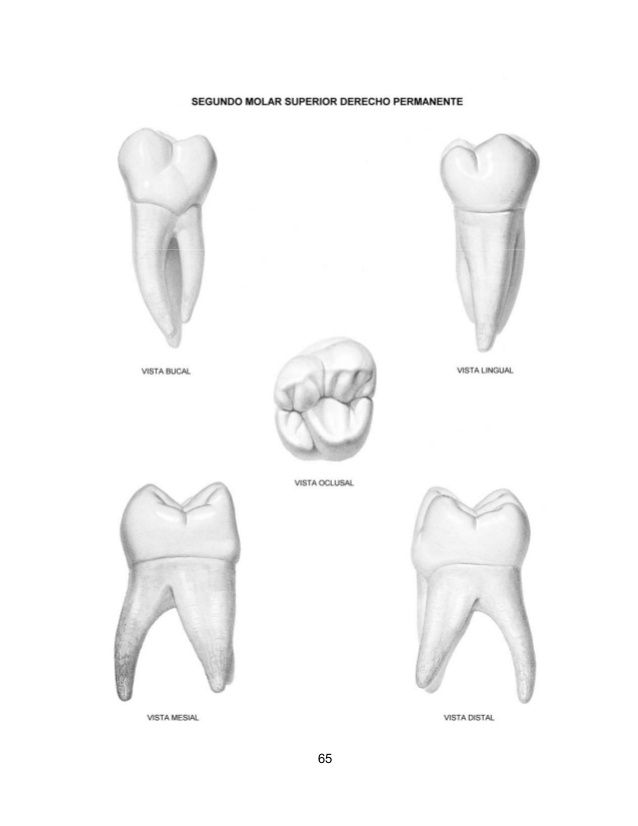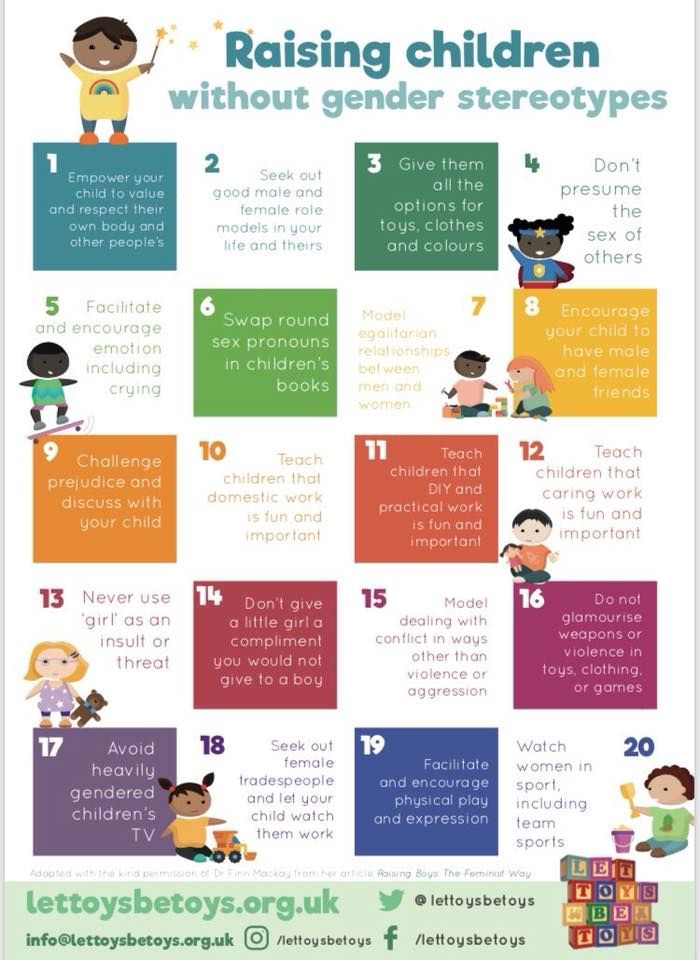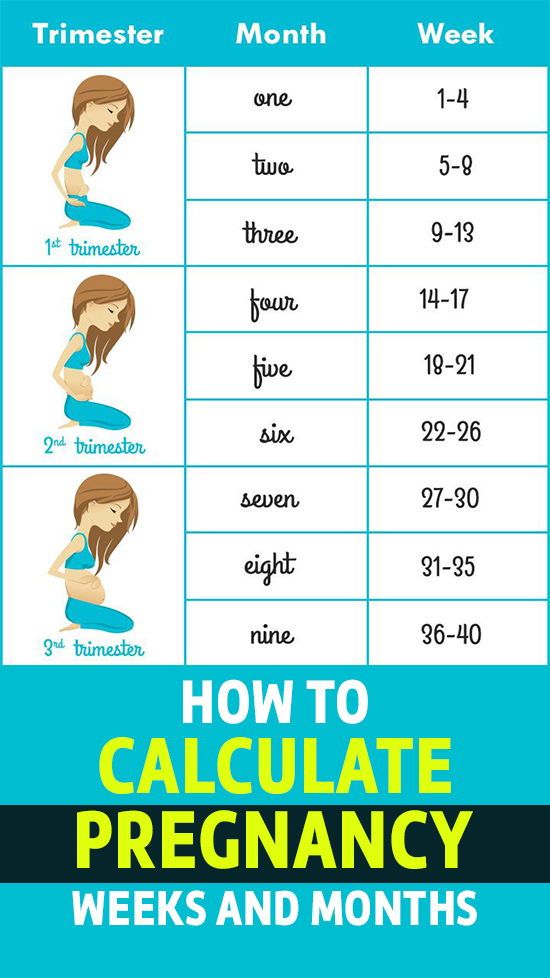How to sue for child support
Can I Sue for Child Support?
Yes, you may be able to bring a child support case. If you are a parent with custody of the child, and the non-custodial parent refuses to help provide financial support, you can go to court and get a court order that requires that parent to make regularly scheduled child support payments. States generally follow similar child support enforcement processes.
In some cases (especially if the parents are on relatively good terms), you may not need a lawyer. But there are many issues that can arise, especially if a parent outright refuses to pay the full amount due, so you may want to consider at least consulting a lawyer.
What Is Child Support?
“Child support" is simply court-ordered payments for the support of a child. Under the law of virtually every state, children have the right to be supported by both parents. When parents do not live together, they can generally go to court and ask for an order setting a regularly scheduled amount for child support.
Child support typically is made up of three parts:
- Basic support (e.g., food, clothes, living expenses, etc.)
- Medical support (health care and dental expenses)
- Childcare support (money for childcare if a parent works or goes to school)
Who Can Ask for Child Support?
Typically, the parent who has physical custody can seek child support. But there are situations in which others may be able to get support as well:
- The person with custody of a child, such as a grandparent, can seek support from one or both parents
- The state (typically through a county attorney or a state agency) can seek a support order if either parent receives public assistance
Note that an adult child is not entitled to sue a parent for child support.
How Do You Go About Getting Child Support?
The way you get child support is defined by state law. Each state has its own process, but they generally follow similar steps. In some cases, you may be able to handle this on your own, but if your situation is complicated or if you don't get along with the other parent, an experienced family law attorney can help. Some attorneys focus specifically on child support cases.
In some cases, you may be able to handle this on your own, but if your situation is complicated or if you don't get along with the other parent, an experienced family law attorney can help. Some attorneys focus specifically on child support cases.
Establish paternity
The first step to getting child support is establishing paternity. Many men will acknowledge paternity, even if unmarried. If the mother is or was married at the time of the birth, states presume that the father is the spouse. But if there is a question or a dispute, a court may need to get involved and order DNA testing.
Get a Child Support Order
Once paternity is established, the second step is to go to family court and get a child support order. Many states allow you to start the process online.
All states have child support guidelines that are used to figure out the amount of child support based on who the child lives with and each parents' financial circumstances. They provide an outline of factors the court is supposed to consider when issuing an order. Some states even use a child support calculator. The focus generally is on the ability to pay and what is in the best interests of the child.
Some states even use a child support calculator. The focus generally is on the ability to pay and what is in the best interests of the child.
The parent who has to pay support is known as the “obligor." The parent who receives support is called the “obligee."
The order typically lasts until the child reaches the age of 18 or graduates high school. An order might be longer if the child has special needs or in a situation in which the parents agree to provide for college tuition and expenses. If living or financial circumstances change, a parent can ask a judge to modify the support order.
Enforce the Child Support Order
The third step is enforcing the order. Sometimes an obligor pays the obligee directly. But in many cases and states, the obligor's employer withholds payments from the obligor's paycheck. The employer then sends the amount to either the obligee or the state agency responsible for handling child support, who in turn makes payments directly to the obligee.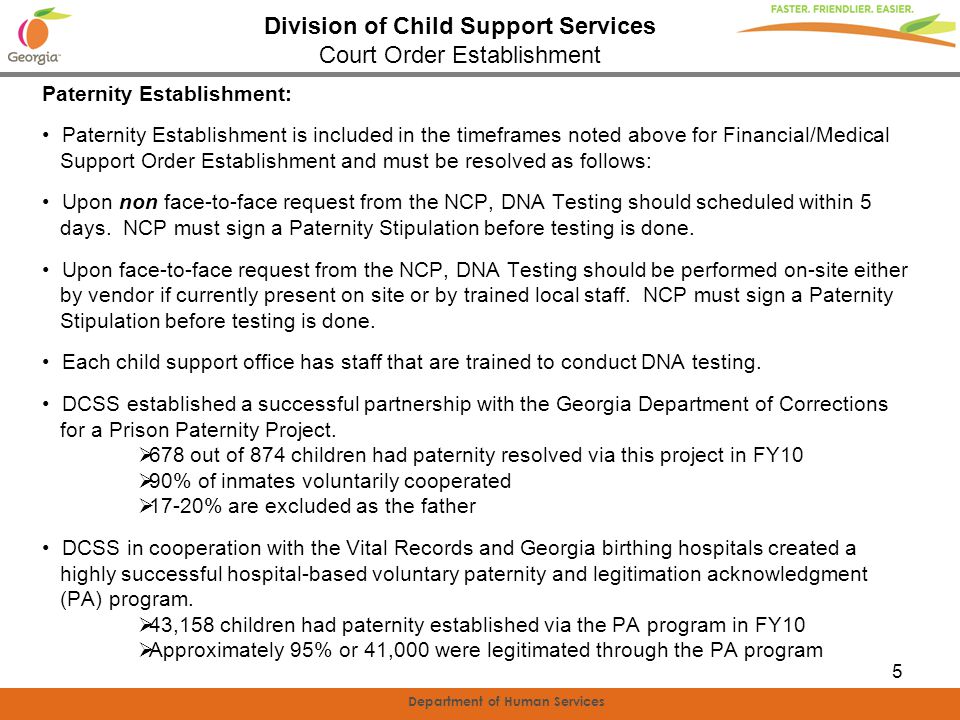
In a perfect world, that would be it. Everything would go smoothly. Alas, we do not live in a perfect world. Sometimes the obligor disappears. Sometimes the obligor gets a different job, and you can't find out where they work. Sometimes they simply refuse to pay. All sorts of obstacles can arise.
In such cases, the state child support services agency (which typically assigns you a caseworker) can help. They have a lot of resources and options (and you might also want to bring in an attorney).
Some of your and the state's options include:
- Tracking down the obligor with the help of other agencies (such as the Department of Motor Vehicles or the Federal Parent Locator Service)
- Suspending or revoking the obligor's driver's license
- Denying a passport
- Withholding tax refunds
- Reporting the obligor to credit bureaus
- Suspending or denying professional or required work licenses
- Seeking to hold the obligor in contempt of court (in some circumstances, they might get jail time).

Note that if the financial circumstances of the obligor change (e.g., they lose their job), they must go to court to get their payment obligation changed. If they don't, they still have to pay the full amount required under the child support order. Back child support is often referred to as “arrearages," and the parent who owes it is said to be in “arrears."
What About a Lawsuit?
Suppose the obligor owes you arrears. And the amount just keeps growing. Is your next step to sue for back child support?
A lawsuit is certainly an option. Child support arrears are a debt. You would be able to file a lawsuit to recover the debt. If you win, you will get a judgment. That doesn't mean you will get paid, however. You need to enforce the judgment.
That can be a difficult process, but the first goal is to locate the assets of the obligor (who is known as the “judgment debtor"). That can be money, personal property (like jewelry), or real estate. Once you have found the assets, you can take a number of steps, depending on the asset:
- Garnishment of the obligor's wages
- File liens against any land or other property (such as bank accounts)
The statute of limitations for a judgment depends on where you are, but in most places, it's 10 years. You may be able to get that extended by another 10 years by applying to a court for an extension of the judgment, giving you a total of 20 years to collect. But depending on where you are, that may be the total amount of time you have.
You may be able to get that extended by another 10 years by applying to a court for an extension of the judgment, giving you a total of 20 years to collect. But depending on where you are, that may be the total amount of time you have.
Note that unpaid child support cannot be discharged in bankruptcy.
Can I Sue the Obligor for Emotional Distress?
Collecting back child support can be a difficult, emotionally draining process. And sometimes the obligor can make you miserable. If the obligor's conduct is truly outrageous, and you suffer severe emotional distress, you may be able to sue the obligor for intentional infliction of emotional distress.
State laws differ, but you generally need to prove the following:
- Extreme and outrageous conduct by the obligor
- Intent by the obligor to cause you severe emotional distress
- You suffered severe emotional distress caused by the obligor's conduct
In some states, emotional distress alone is not enough. You may need to show that you suffered physically as well (e.g., insomnia, nausea, etc.). A personal injury attorney could help you decide whether you may have an emotional distress claim against the obligor.
You may need to show that you suffered physically as well (e.g., insomnia, nausea, etc.). A personal injury attorney could help you decide whether you may have an emotional distress claim against the obligor.
A Lawyer May Be Able to Help You
Child support issues can be extraordinarily contentious and stressful. You may be able to handle aspects of it yourself. But not everyone gets along well enough with their co-parent to manage a difficult situation amicably for the entire time that their child is a kid.
If you find yourself in such a situation, you should consider getting legal help from a law firm that has lawyers experienced in handling child support matters. A good lawyer can help diffuse the situation, give you legal advice, guide you through the process, and, if need be, help you enforce a child support order or judgment.
Can I Sue for Child Support Enforcement?
Yes, you can sue for child support enforcement. Though state law varies, child support is normally secured in three steps: (1) establish paternity, (2) receive a court order, and (3) enforce the order. Once secured, a child support order can be enforced by state and federal authorities.
Once secured, a child support order can be enforced by state and federal authorities.
Past-due child support is said to be in “arrears." A parent who fails to correct child support arrearages may face serious legal consequences. In extreme cases, criminal prosecution is an option.
After discussing child support enforcement at the state and federal levels, this article explores penalties a non-compliant parent may face.
National Child Support EnforcementIn the past, child support enforcement was left to the states. The inconsistency led to confusion and let deadbeat parents slip through the cracks.
In 1975, Congress responded by requiring all states to manage their child support programs based on minimum federal standards. Because this law is found in Title IV-D of the Social Security Act, cases handled through these programs are sometimes known as “IV-D cases."
Congress also created the Office of Child Support Enforcement (OCSE). This office works with state and tribal agencies to develop programs based on overarching guidelines. It also provides many helpful resources to parents and professionals trying to enforce court-ordered child support. These include a comprehensive handbook available directly to parents, as well as a parent-locator service available by working with your local child support service.
It also provides many helpful resources to parents and professionals trying to enforce court-ordered child support. These include a comprehensive handbook available directly to parents, as well as a parent-locator service available by working with your local child support service.
Despite federal standards, child support laws still vary widely from state to state. Therefore, a local family law attorney can be a crucial ally in securing past due child support payments.
National Child Support StatisticsDespite robust government programs, ensuring that minors receive financial support from both parents is still an ongoing social problem. The Census Bureau reports that nearly 22 million children had a parent living outside their home in 2018. Thirty percent of these children lived in poverty (i.e., three times the rate of children that lived with both parents).
Sadly, mothers are disproportionately impacted compared to fathers. In 2017, 44.7% of custodial mothers participated in at least one public assistance program compared to 26. 2% of custodial fathers.
2% of custodial fathers.
In many cases, problems arise when a child or parent moves out of state. To make sure deadbeat parents do not evade their child support obligations by moving states, all 50 states have adopted the Uniform Interstate Family Support Act (UIFSA). This law sets a baseline for establishing, modifying, and enforcing child support orders across state lines.
Before UIFSA, two states could each issue a support order in one case. This led to confusion and delay when enforcing child support obligations. UIFSA solved the problem by allowing only one “controlling order" to be active at a time. Once a controlling order is issued in one state, it may be registered with another state's child support enforcement agency. The registered order can then be enforced in the new state in the same manner as in the issuing state.
For more, see Child Support Enforcement Under UIFSA and How Do I Find a Parent for Child Support?
Penalties for Deadbeat ParentsDeadbeat parents may face several legal consequences for failure to comply with a child support order.
Child support enforcement agencies are equipped with many tools to encourage or force parents to pay child support arrears. These include:
- License Suspension. State child support agencies may suspend your driver's license for failure to pay child support. They may also suspend business, occupational, professional, and recreational (e.g., hunting and fishing) licenses.
- Passport Denial. If you owe $2,500 or more in child support, you cannot receive a U.S. passport. If you already have a passport, its use can be restricted.
- Income Withholding. A court may also order that a parent's wages be garnished by their employer. Federal law allows garnishment of up to 50% of a parent's income. This increases to 60% if the parent does not support another child or spouse.
- Tax Refund Offset. The Federal Tax Refund Offset Program allows the government to withhold a parent's tax refund. The funds are then sent to state agencies to offset child support debt.
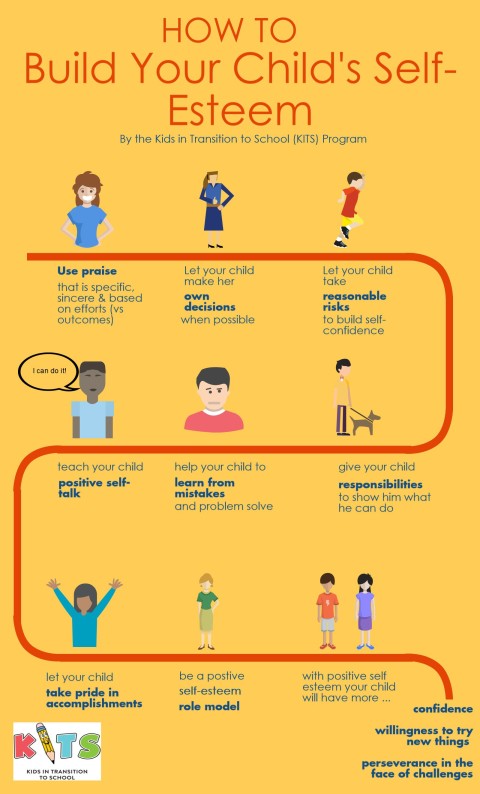
- Child Support Lien. A lien may be placed on a parent's property. A lien is a legal claim held by a creditor against a debtor's property (e.g., cars or real estate). The lien can block sales of the property until the child support debt is paid. It may also impact the debtor's credit report.
- Seize Property. In some cases, a parent's property may be seized directly, including funds in a bank account.
In extreme cases, intentional failure to pay child support can lead to jail time. There are three federal crimes associated with failure to pay child support:
- If the amount past due for a child who lives in another state is (1) over 1 year late or (2) greater than $5,000, intentional failure to pay is punishable by a fine, up to 6 months in prison, or both.
- If the amount past due for a child who lives in another state is (1) over 2 years late or (2) greater than $10,000, intentional failure to pay is punishable by a fine, up to 2 years in prison, or both.

- Interstate or international travel to intentionally avoid paying back child support that is either (1) over 1 year late or (2) greater than $5,000 is punishable by a fine, up to 2 years in prison, or both.
Despite these laws, most child support prosecution is handled at the state level, and child support arrearage must first be addressed at the state level before federal prosecution may take place.
Intentional failure to pay child support is also a crime at the state level, ranging from low-level misdemeanors to felonies. Punishment may include fines (from a few hundred dollars to tens of thousands) and jail time (from a few months to years). Factors include the amount of child support owed, how late payments are, and if the failure to pay is recurrent.
A Lawyer Can HelpThe law places a special emphasis on the well-being of minors. This is reflected in the national system of child support enforcement, as well as in criminal codes throughout the country.
Parents trying to enforce child support orders have many tools at their disposal. If you need help enforcing a child support order, an attorney experienced in child support matters can help you figure out the law and use these tools to your advantage.
Apply for alimony through public services - procedure and instructions
Now many people are interested in how to submit this or that application through public services and get the necessary documents without going to the authorities.
Using an account on the Public Services portal, you can apply to the court for alimony online, reapply for alimony, or file a claim for a reduction in alimony through public services.
We tell you how to apply for alimony via the Internet, what are the difficulties, what procedures are provided for and what package of documents will be required to collect alimony.
How to issue alimony on the website of the State Service?
You can now apply for child support online. However, things are not so simple: it may be easier in your case to file for alimony after a divorce in the usual way - through the clerk of the court or through your legal representative.
However, things are not so simple: it may be easier in your case to file for alimony after a divorce in the usual way - through the clerk of the court or through your legal representative.
The fact is that the Portal of State Services of the Russian Federation https://www.gosuslugi.ru/ itself does not provide an opportunity to file claims or remotely consider court cases.
The portal "Gosuslugi" does not allow filing lawsuits, but his account is used to enter other services
You can apply for alimony online using the special service GAS "Justice" (the state automated system "Justice") - this resource is specially created for filing documents with the court in electronic form.
In fact, filing for divorce and alimony through public services means using your account on gosuslugi.ru to enter other services.
To enter the GAS "Justice" requires an account from public services.
You can register for GAS "Pravosudie" separately, but the site will redirect you to the registration page in the Unified Identification and Authentication System (Unified Identification and Authentication System), that is, to the State Services portal.
When you log in, you will see a message like this
Important: The account in the ESIA is used to access many official services - data from the Pension Fund, tax authorities, courts, bailiffs, so you need to make a full confirmed record on the State Services.
Difficulties in going to court through the State Services
The collection of alimony through the State Services, as well as the filing of other appeals, requires some preparation.
1. Requires a full confirmed record on the State Services.
2. You need to obtain a qualified electronic signature (QES) in advance - purchase a certificate from a specialized certification center.
3. It is necessary to install a special program on the computer in advance - a means of cryptographic information protection (CIPF). There are several of them, the functionality is approximately the same. Upon receipt of the CEP certificate, the certification center informs which programs are needed.
Electronic submission of documents to the court is beneficial and convenient for lawyers or businessmen - those who often use such services.
4. Consideration of the case, even if you applied for child support online, will proceed as usual. The plaintiff and a representative must come to court, but the plaintiff may file a motion to hear the case in his absence. That is, electronic filing of a claim does not greatly speed up the process.
5. You need to write a statement of claim for the recovery of alimony in advance, sign it, then scan the claim and application documents. The GAS "Justice" system does not provide forms for filling out documents online, the applicant simply attaches electronic images of documents to the application.
Documents for the court for the recovery of alimony must be prepared in advance on paper and scanned
To summarize: all this requires time and money for preliminary preparation, so not everyone can apply for alimony through public services and it is not always faster than the traditional way.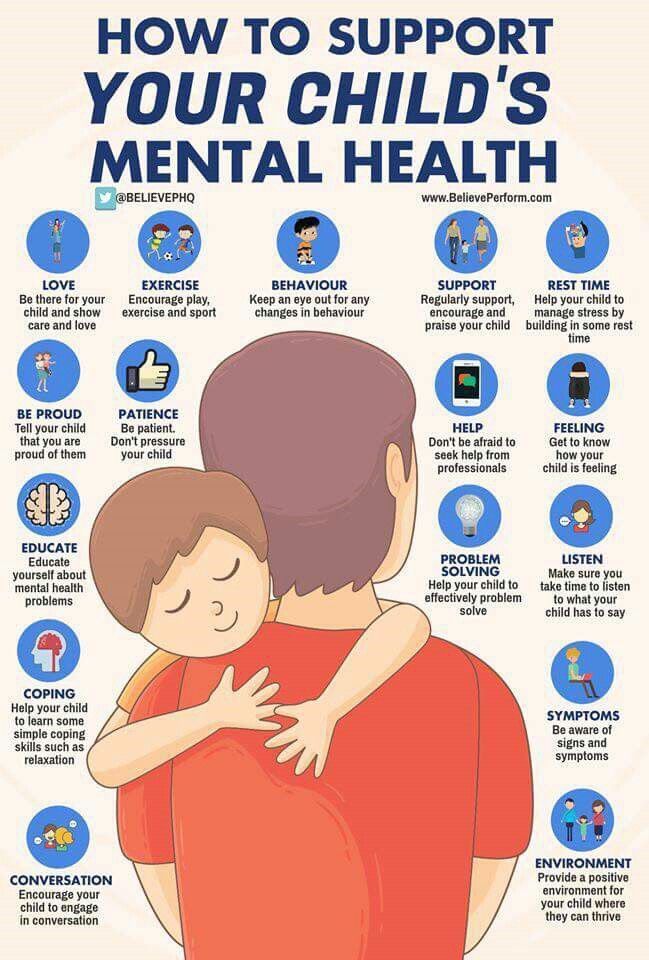
Electronic filing of documents with the court is beneficial and convenient for professionals (lawyers and businessmen) who need to use such services frequently. And for citizens who go to court once in a lifetime when collecting child support, it is easier to use traditional methods of filing an application.
If you need to file for non-payment of child support quickly and you don't have a CEP, our lawyers can help you file the traditional way or use your CEP as a representative in the case.
Apply for child support online through public services: pre-training
Before applying for alimony through public services, it is necessary to collect a package of documents, draw up an UZ and CEP:
- Create a verified account on the portal www.gosuslugi.ru.
- Obtain a qualified electronic signature on a special medium.
- Prepare a statement of claim to the court (or an application for the issuance of a court order).

- Collect a package of documents-applications to the claim.
- Scan all documents.
- Send a claim with a package of documents to the defendant by registered mail with acknowledgment of receipt.
- Wait for the notification to return and scan it.
So, before filing a claim online, you need to prepare a package of documents and obtain evidence that a copy of the claim has been sent to the defendant - this is a duty assigned by law to the plaintiff.
Apply for child support through public services: step by step instructions
Now we will tell you how to proceed if you have everything you need to apply for child support online:
1. Go to the portal GAS "Pravosudie".
2. Select "Submit a request" or "New request".
3. Select the type of legal proceedings "Civil proceedings".
4. Select "Statement of Claim" or "Statement for issuance of a court order".
5. Fill out the application form and attach proof documents (certificates of marriage, divorce, birth of a child, etc.).
You need to select the “Personally” method of appeal, then select a specific court from the pop-up list, attach the claim under the “Substance of the application” button, attach scans of evidence documents under the “Appendices to the application” button.
You do not need to attach a receipt for payment of the state fee, since the plaintiffs in cases of alimony are exempt from paying the state fee when filing a claim (the fee will be collected at the end of the proceedings from the losing party).
Claimants in cases of alimony are exempted from paying state duty when filing a claim.
6. File a claim for alimony using the CEP (click "Create an application").
To file a claim online, you also need a properly drawn up statement of claim and supporting documents in the case - our lawyers will help you quickly prepare the required package of documents.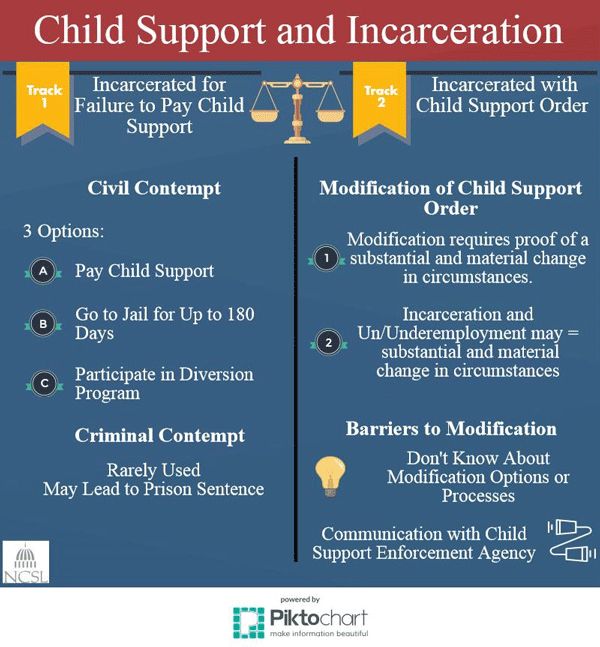
How to get a verified account on the State Services portal?
There are 3 types of accounts (UZ) on the State Services portal:
-
simplified
-
standard
-
qualified.
The largest volume of services, including the ability to log in to the websites of government agencies and submit documents electronically, is provided by a complete (confirmed) UZ.
A confirmed UZ makes it possible to apply for registration of a foreign passport, obtaining maternity capital, certificates of registration of an individual entrepreneur or legal entity, sign up for registration of vehicles, marriage, an appointment with a doctor, etc.
It will not be possible to confirm the UZ immediately on the site. First you need to fill in all the required fields on the portal, and then go through the confirmation procedure.
There are 4 ways to validate an ID:
- Contact one of the special service centers that deal with data confirmation. You need to have a passport and SNILS with you.
- Order an identity verification code from the profile by Russian Post. From there, a registered letter with a code will come by mail, after that you need to enter these data in the appropriate fields of the registration form and complete the registration process;
- Confirm UZ through the bank. This can be done in a mobile application or in the personal account of some banks in which you have opened accounts;
- Use a Qualified Electronic Signature (QES).
So, the process of confirming the UZ takes a certain time.
Types of electronic signatures
An electronic signature (ES) is needed to confirm the authenticity of electronic documents sent online. From a legal point of view, any ES confirms the following information: this document / letter was written by such and such a person at such and such a time and after that the document did not change. However, not all types of ES can ensure the reliability of all this information.
However, not all types of ES can ensure the reliability of all this information.
There are several types of EP:
| Simple | Unskilled | qualified |
| It is a login and password from an account on any service, from an email box. It is believed that letters and appeals sent from this address are sent personally by the owner. But this is the most unreliable type of signature (vulnerable to forgery), it is not used for significant and official documents. A simple signature cannot guarantee that the document was written personally by the owner and that the content of the appeal has not changed since it was sent. | It is a specially generated file with numbers, which is attached to an electronic document. It is created with the help of special programs - means of cryptographic information protection (CIPF). Such signatures can be created using free services. They are used within companies, as well as between counterparties in contractual relations for the security of document management. Such signatures are created by commercial companies and are used by agreement between the persons exchanging documents. The state does not recognize unqualified signatures, since it does not have control over their production and issuance. | It is a specially generated file with numbers, which is attached to an electronic document. It is issued in special certification centers that have been certified and accredited by the Federal Security Service and the Ministry of Digital Development. The CEP certificate is issued for a period of 1 year. QEP is valid during this time. The CEP differs from an unqualified signature only in that it is issued and executed in special organizations controlled by the state. |
For official applications to state bodies, only a qualified electronic signature is used.
As for the unqualified signature (NEP), they are accepted in official instances if it is established by the rules of a particular organization. For example, when working with mobile applications of banks, entering a code received via SMS is equivalent to signing a document.
Of the government agencies, at the moment, only the Federal Tax Service (FTS) itself generates an ES on its website - you can get a signature without visiting the tax office. In the future, this signature is valid when resolving any issues with the Federal Tax Service (application for a tax deduction, complaint).
How to get a qualified electronic signature?
To do this, you need to contact a special certification center for issuing ES keys. They are in every subject of the federation.
They are in every subject of the federation.
A certification authority is a commercial organization that has received a certificate for working with cryptographic data protection tools and has been accredited by the Ministry of Digital Development, Communications and Mass Media of the Russian Federation.
Citizens can apply for a CEP certificate through the MFC, legal entities and individual entrepreneurs must contact the certification center directly.
to apply for a CEP, you need a passport, a certificate of TIN and SNILS.
CEP can be recorded on different media, which must be purchased at a certification center:
- token - specialized software that requires a password to work with it, looks like a flash drive, is needed to enhance information protection;
- Smart card - similar to a standard bank card;
- Flash - a small device with a USB connector and a memory card for storing information, a simple option without additional protection;
- SIM card - a device from a mobile operator with a pre-installed Java application
External media for EDS (photo from Wikipedia)
Usually, all external media is called a "token". Although the token itself for EDS is one of the types of carriers. The token is the most reliable carrier, since to use it you need to enter an activation code, which is issued to the owner in the certification center. Therefore, if the carrier is lost, another person will not be able to use the EDS.
Although the token itself for EDS is one of the types of carriers. The token is the most reliable carrier, since to use it you need to enter an activation code, which is issued to the owner in the certification center. Therefore, if the carrier is lost, another person will not be able to use the EDS.
Other media are less reliable: EDS via a SIM card in a phone or on a regular flash drive is opened to anyone.
a certificate is required to work with the EDS.
In addition, an EDS certificate is also needed to certify documents. This is a certain set of bytes, outwardly it is an electronic and paper document that confirms the connection of an electronic signature with its owner. For enhanced ES, a qualified certificate is needed.
The certificate confirms that the owner has a key pair - a public and private ES key. Public key - a visible set of characters that will be displayed in the ES stamp on the document. The private part is created by means of encryption, is not visible to the user, and is verified through special ES authentication programs.
working with the CEP is quite simple, but you need to allocate time in advance for its design
Working with the CEP is quite simple, but you need to allocate time in advance for its design. In addition, this is a paid service. Ordinary citizens who need to submit documents to the court one-time and who do not actively use the services of obtaining electronic documents for business or personal purposes, such a waste of time and money is unprofitable - it is easier and cheaper to contact a lawyer once.
Important! You cannot transfer the signature to another person, and in case of loss, you must immediately inform the certification center where the signature was issued - he will be responsible for all documents signed on behalf of the owner.
Filing an application to the Magistrate's Court through the State Services
If you want to claim child support in a simplified manner by issuing a court order for the recovery of child support, then the application must be submitted to the justice of the peace.
The procedure for submitting documents to the Magistrate's Court in electronic form is regulated by the Order of the Judicial Department under the Supreme Court of the Russian Federation of September 11, 2017 N 168 "On approval of the procedure for filing documents in electronic form to justices of the peace, including in the form of an electronic document."
The electronic signature is attached as a separate file.
This document describes the requirements for files that are sent to the court - section 2.2. and 2.3. Order. In particular, the electronic signature is attached as a separate file (clause 2.3.5.).
Order
Order of the SD of the Armed Forces of September 11, 2017 No. 168
Download
Sample Application for a Court Order
In simple typical situations, alimony can be collected under a simplified procedure - through a court order. If the child's birth certificate contains records about the father and mother, the spouses are divorced, then you need to write an application for a court order, attaching copies of passports, birth certificates, marriage and divorce.
If the child's birth certificate contains records about the father and mother, the spouses are divorced, then you need to write an application for a court order, attaching copies of passports, birth certificates, marriage and divorce.
The order is issued within 5 working days. The defendant may contest it within 10 days. If he fails to do so, the order will take effect.
It must be presented for collection to the bailiff at the place of residence of the defendant.
Sample Application
Application for issuance of a court order for the recovery of alimony for a minor child
Download
Applying to the District Court via the Internet
A claim for the recovery of alimony is filed with the district or city court at the place of residence of the defendant (future payer).
The procedure for submitting documents to courts in electronic form is regulated by the Order of the Judicial Department at the Supreme Court of the Russian Federation of December 27, 2016 N 251 “On approval of the procedure for filing documents in federal courts of general jurisdiction in electronic form, including in the form of an electronic document”.
Sections 2.2. and 2.3. The Order contains requirements for documents, section 3 describes the application procedure step by step.
Order
Order of the SD under the Armed Forces of the Russian Federation dated December 27, 2016 No. 251
Download
Sample claim for the recovery of maintenance for minor children
When submitting documents via the Internet, the same rules for drafting and filing a claim apply as in ordinary legal proceedings.
A statement of claim for the recovery of alimony is filed if the defendant contested the court order. Or in other difficult cases, when additional circumstances need to be proved (the defendant hides income, additional expenses for the child are needed, an application for deprivation of parental rights, an application for the recovery of alimony for the past period, etc.) is filed at the same time.
A claim for the recovery of alimony must be filed in the courts of general jurisdiction - district or city.
Sample Application
Sample statement of claim for the recovery of alimony for a minor child
Download
Conclusion
Let's summarize:
- Only those citizens who already have a full account on the State Services portal and a qualified electronic signature can apply for alimony through public services;
- Consideration of the case on the recovery of alimony (or on the issuance of a court order on the recovery of alimony) in court will be carried out in person, according to the usual procedure;
- Online filing of documents does not always simplify and speed up the procedure - remote and electronic justice technologies are still developing in Russia;
- For those citizens who do not have a CEP, it is irrational to deal with registration for the sake of one claim - it will be faster to submit documents in paper form;
- The collected amounts of alimony do not depend on the method of filing documents, but on the quality of the claim and evidence drawn up, therefore it is always better to prepare a package of documents with a lawyer.

FAQ
Is it possible to issue alimony in marriage through public services?
+
Yes, you can collect child support while being married, and after a divorce, and without getting married. Applying through the State Services in this case is just a way of submitting an application to the court. This is available to those who have already issued a full account on the State Services portal and have a valid qualified electronic signature.
Can I sue child support through mos.ru?
+
An application to the court for the recovery of alimony is submitted on a special portal - GAS "Pravosudie". Gosuslugi and mos.ru will simply be redirected to this site, and you can enter there using your Gosuslug login and password. You can log in to mos.ru through your Gosuslug account or create a separate account. If there is a UZ only for mos.ru, then you will not be able to log in to the Pravosudie GAS.
In which regions is it possible to file for child support online?
+
There are no restrictions on subjects of the federation. Any citizen of the Russian Federation who has a verified account on the State Services portal and a qualified electronic signature can send an application to the court in electronic form. If the courts refuse to accept the application, then this is illegal and contradicts the Order of the SD under the RF Armed Forces dated December 27, 2016 No. 251. Such actions must be appealed. However, in the case of magistrates' courts, such failures are due to the lack of the necessary equipment and software. Formally, you will be right, but you will lose a lot of time on such an appeal. It is better to contact a lawyer and simultaneously file a claim in the traditional written form.
Is it possible in Tyumen to apply for alimony through the State Services?
+
The ability to collect alimony remotely does not depend on the subject of the federation. It is necessary to issue a full account in the ESIA (Gosuslug portal) and obtain a qualified electronic signature. Please note that the case will still be heard in court.
It is necessary to issue a full account in the ESIA (Gosuslug portal) and obtain a qualified electronic signature. Please note that the case will still be heard in court.
How to file for child support in Ukraine
You have the right to file for child support even if the child has already reached the age of majority, the former spouse has left the country or you are still married. The size of the material payment will be established by the court, but it is in your power to provide evidence to recover the maximum amount. Let's talk about where to go to collect child support, as well as how to protect your rights and the interests of the child at each stage of resolving the situation.
The procedure for applying for child support in Ukraine
The financial maintenance of a child is a direct responsibility of both his parents, enshrined in the Family Code of Ukraine. You can apply for child support while you're married or divorced. The law also allows you to file a lawsuit if you are not officially registered with the second parent of the child.
It is possible to issue alimony in two formats:
- Voluntary
- Forced
In the first case, you do not need to prepare a claim for recovery and collect documents for filing in court - it is enough to agree with the second parent on the procedure for payments and compensation for expenses for the child. It is not necessary, but it is desirable to draw up a written agreement and notarize it.
During the forced collection of alimony, it is necessary to file a claim: collect a package of documents and apply to the court at the place of residence, or at the place of residence of the defendant. In this case, a child support lawyer can assist in the preparation of the necessary documents. Depending on the specific situation, alimony will be assigned in a fixed amount of money, or in the amount of a percentage of the earnings of the other parent.
You can apply for child support before a formal divorce – the process is the same as after a divorce.
On this occasion, you can also go to court, or conclude an agreement on a voluntary basis.
Applying for child support in a legal marriage
If a father or mother does not support their child while being legally married to the other parent, the other parent can apply for and enforce alimony. The procedure is also relevant in situations where third parties, such as creditors, claim the income of one of the spouses.
Example: a wife collects documents and files a claim for maintenance for four children from her legal husband. The rules do not prevent her from suing before the divorce. The court makes a decision and collects in favor of the spouse of a citizen 50% of his income monthly. Creditors who also collected documents and filed a lawsuit against the same citizen will now be able to count not on half of his salary, but only on 25%, because the payment of alimony will be a priority.
Child support in civil marriage
If you were not officially married, but your common-law spouse is entered as a father or mother on the birth certificate, then you can safely collect documents for alimony and independently collect them in court - file an appropriate claim.
The amount of alimony in Ukraine is regulated by Article 183 and Article 184 of the Family Code and, as a rule, it amounts to the following amounts: /3 for two children and so on, but not more than 50% of the total earnings.
The maximum amount of alimony that can be issued for a minor under the age of 6 years at the time of preparation of the material is 20130 UAH, and at the age of 6-18 years - 25100 UAH. In any case, the amount of payments should not exceed 10 living wages, which are legally defined for citizens of the corresponding age.
In any case, the amount of payments should not exceed 10 living wages, which are legally defined for citizens of the corresponding age.
The only difference when applying for alimony in a civil marriage from a similar procedure in an official marriage is the list of documents. It will be necessary to collect all the papers, with the exception of the marriage certificate.
Collection of alimony in case of divorce
Divorce proceedings can be supplemented by the decision on the appointment of alimony to the spouse with whom the child will not live. In this situation, two options are possible. Parents can either agree or ask the court to order alimony. In the first case, a verbal agreement is sufficient; in the second, it is often necessary to file a lawsuit.
What you need to do:
- collect the necessary documents;
- if necessary, prepare evidence;
- send documents to the court;
- attend the meeting;
- receive a court decision.

Evidence may be required if you want to convince the court that the other parent earns more than what is claimed and file a claim for a lump sum payment. The procedure is not the easiest, so the help provided by an experienced divorce lawyer will definitely not be superfluous. Leave a request on our website to get professional advice.
If the other spouse's paternity is not recognized and established, it will be impossible to file for alimony even during the divorce proceedings. So if a single mother marries, then in the event of a divorce, her ex-husband will not be required to pay alimony for children who were born before the marriage and whose paternity has not been established in the manner prescribed by law. It's pointless to file a claim.
Ways to collect alimony
As we noted above, there are only 2 ways - voluntary and compulsory. However, in each case, it is worth using every opportunity to defend your interests.![]() It is important to understand how to properly prepare the necessary documents, where to apply for alimony, when to file a claim and how to secure a voluntary agreement. It is also worth finding out what conditions should accompany the emergence of the right to increase or decrease alimony.
It is important to understand how to properly prepare the necessary documents, where to apply for alimony, when to file a claim and how to secure a voluntary agreement. It is also worth finding out what conditions should accompany the emergence of the right to increase or decrease alimony.
Agreeing with the other parent about the amount of monthly payments and making a compromise is easier than filing a lawsuit. If this seems impossible, contact a specialist. An experienced family lawyer will find an approach even to ardent opponents of payments, who de facto want more "war" with the second parent than do not want to pay child support. Contact us - we will tell you how much the service costs and what you can expect if you order it.
If a voluntary settlement of the issue is not possible, it is necessary to file a lawsuit. Pay attention to the types of alimony that can be collected forcibly for the maintenance of children:
- for minors;
- for those who have reached the age of majority, but continue their education;
- for disabled adults;
- for the spouse with whom the child lives until they reach the age of 6;
- per spouse during her pregnancy.

According to Art. 185 of the Family Code of Ukraine, you can also apply for payments in case of special circumstances. Some of them are clearly spelled out in the law, others are established by a court decision after familiarization with all the circumstances, case materials and evidence presented by the parties.
If the court has determined that you should receive child support from the second parent, but he is in no hurry to pay them, then you can submit documents to the State Enforcement Service for the enforcement of recovery of funds. When applying, you must provide a court decision and all the necessary documents, their list should be clarified in advance.
Frequently Asked Questions
-
Can a single mother apply for child support?
Yes, a single mother can file for child support, but only after paternity has been established.
 To do this, it is necessary to initiate a judicial procedure. During it, a genetic examination will be carried out, according to the results of which the defendant will be entered into the birth certificate. After that, it is possible to collect alimony.
To do this, it is necessary to initiate a judicial procedure. During it, a genetic examination will be carried out, according to the results of which the defendant will be entered into the birth certificate. After that, it is possible to collect alimony. -
Which court is filed for child support?
Documents and a statement of claim should be submitted to the court of first instance at the place of registration of the plaintiff or defendant.
-
Can I file for child support without a divorce?
Yes, you can. You can apply for alimony regardless of the marital status of the parents: they can be officially married, cohabiting or divorced.
-
How to file for child support if paternity is not recognized?
Unable to file for child support until paternity is established.
 You must first initiate the procedure and only after a positive court decision to collect alimony.
You must first initiate the procedure and only after a positive court decision to collect alimony. -
What determines the amount of child support?
The amount of child support depends on many circumstances. In particular, on the state of health of the alimony payer, on being dependent on other persons, income, the presence or absence of official employment. When assigning alimony, the court may take into account the documents submitted by the parties and take into account other circumstances when establishing payments in the form of a part of monthly income or a fixed amount of money.
List of required documents
The list of documents directly depends on whether you were (or are) married to the second parent, what amount of payment you want to receive and what justification you are ready to provide in the course of proceedings.
In any case, you will need:
- a copy of your passport and identification code;
- birth certificates;
- certificate of family composition;
- income statement of the defendant - if he does not want to provide it to you, the court will oblige him to bring the document;
- certificate from the place of study, if alimony is collected for an adult student.

If you are married with the second parent, you will need to provide a certificate of marriage, if the union was terminated - a certificate of its termination, respectively. You may also need other documents confirming the amount of expenses - for example, receipts for payment for treatment, sports clubs, necessary equipment, equipment, and so on.
If the father is not entered in the birth certificate, then it will not be possible to collect alimony from him even in court. However, you can file a claim and initiate paternity proceedings. We recommend that you do not postpone the solution of this issue - in some cases it may take more than one year, for example, if the biological father is abroad or is serving a sentence in prison.
Where documents for the recovery of child support are submitted
Jurisdiction of cases is determined by Art. 28 Code of Civil Procedure of Ukraine. The statement of claim and documents for the recovery of alimony must be submitted to the court of first instance at the place of residence of the plaintiff or defendant. However, it is possible to challenge decisions and non-standard situations.
However, it is possible to challenge decisions and non-standard situations.
Where to apply in this case:
- To the district court, for example, if paternity is required.
- To the courts of the following instances - if it is necessary to challenge the decision of the court.
Note that you can do without a court - nothing prevents the spouses from concluding an agreement. We strongly recommend that you do this in writing so that in the event of disputes in the future, you will have on hand evidence of the agreements reached and file a claim with the court without collecting evidence. It is also advisable to notarize the agreement.
If the defendant lives outside of Ukraine, then the procedure for collecting alimony practically does not change. It must be filed with the Ukrainian court of first instance. Here, the decision is made in absentia, and then sent to the country in which the second parent lives.
 Such programs must be certified by the FSB of Russia.
Such programs must be certified by the FSB of Russia.  Certification centers verify the identity of the citizen and his personal data, so the signature issued by them is considered reliable.
Certification centers verify the identity of the citizen and his personal data, so the signature issued by them is considered reliable. 



